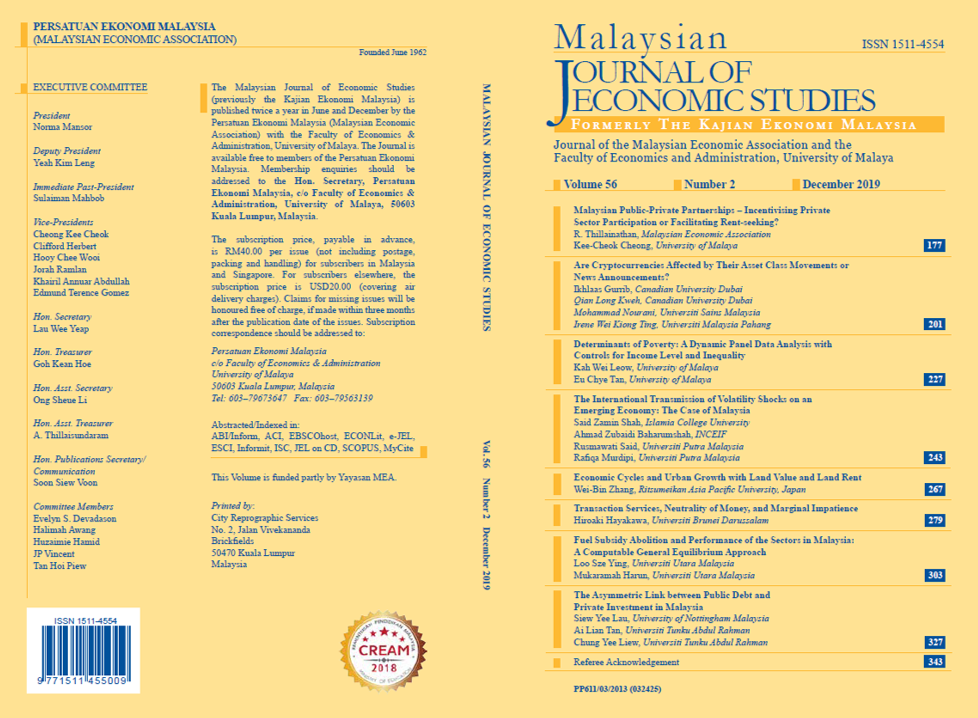The International Transmission of Volatility Shocks on an Emerging Economy: The Case of Malaysia
DOI:
https://doi.org/10.22452/MJES.vol56no2.4Keywords:
Economic policy uncertainty, output growth, inflation, multivariate GARCHAbstract
This study examines the effects of global economic policy uncertainty (EPU) on Malaysia’s macroeconomic indicators. Three substantive findings emerged from our inquiry based on a multivariate generalized autoregressive conditional heteroscedasticity (GARCH) model: (1) Domestic uncertainty – in nominal and real terms – seems to have no material impact on the macro-economy after controlling for global uncertainty. (2) Fluctuations in the global EPU are more important than domestic uncertainty in predicting a country’s macroeconomic variables, particularly output and CPI-based inflation. The macroeconomic variables carry signs as per theoretical expectation. (3) The model predicts that external shocks exhibit a much larger impact on macroeconomic variables than those shocks originating from domestic markets. The results have deepened our insight on how the real variables correlate with external uncertainties and the fitful recovery in the recent past.







